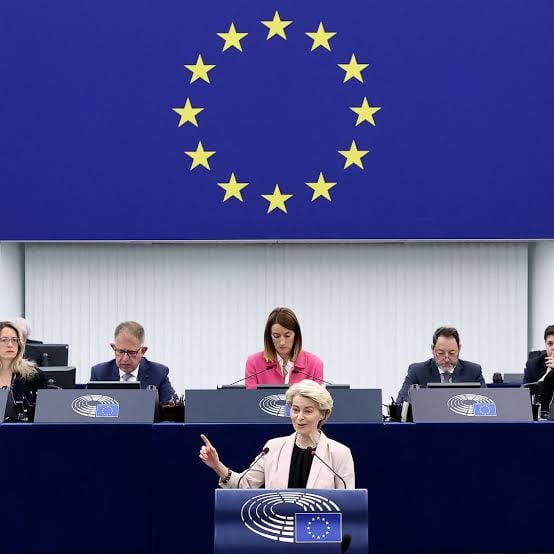Eurozone Growth Stalls as ECB Faces Tough July Decision
The eurozone economy showed little momentum in June, with business activity stagnating and PMI figures missing market expectations.
The composite PMI for the bloc held steady at 50.2, just above the line separating growth from contraction, but short of the anticipated 50.5. The services sector edged up to 50, while manufacturing stayed at 49.4, highlighting weak demand despite the European Central Bank’s recent rate cut to 2%.
Germany provided probably the only bright spot, with its composite PMI touching 50.4 in June from 48.5 the month before. Manufacturing new orders posted their strongest rise in over three years, fuelling cautious optimism that Europe’s largest economy may shake off its stop-start growth pattern.
German services also improved, hitting 49.4, the mildest contraction seen in months. France, however, dragged the region down, with its PMI sliding to 48.5, marking a shocking ten straight months of decline. French firms blamed this situation on falling demand, stiff global competition, and ongoing uncertainty around trade.
What Does This Mean for Me?
US military action in Iran over the weekend has fuelled concerns of escalating Middle East conflict, pushing oil prices higher and threatening Europe’s fragile inflation trajectory. With nearly 20% of global crude passing through the Strait of Hormuz, energy markets remain on edge.
Compounding the volatility, Europe’s temporary trade truce with the US expires on July 9. If no deal emerges, new tariffs could add to the region’s economic headwinds, leaving the ECB with limited room to manoeuvre.

More News
.webp)
Japan’s Rate Shift Is Rippling Through Global Bond Markets

China’s Growth Engine Stalls as Consumers and Investors Pull Back

Egypt’s Recovery Gains Traction as Household Pressure Lingers

OECD Warns AI and Tariffs Will Test the Global Economy

Zero Tariffs, Higher Drug Bills as US and UK Reset Pharma Trade

Catastrophe Bonds Go Global as Climate Risk Meets Yield Hunting
.webp)
Canada Shields Steel and Lumber Industries From Tariffs
